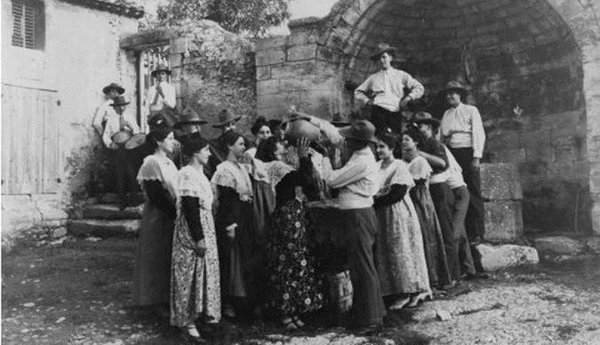
The making of a mother tongue: Occitan, Yiddish and Belarusian in the context of regionalist enthusiasm, philological discourse and national agitation
Project duration: since 2020
German funding for the project is provided by the DFG.
Project management: Martina Niedhammer
“Nationality expresses itself in one's language in everyday practice, particularly in one's spoken language (or mother tongue); statistics on nations are preordained by language, grammatologists study the extent to which dialects can be distinguished from true languages.”
(Masaryk, Tomáš G.: Nová Evropa (1920), as quoted form the German translation by Emil Saudek (1922), 48)
In a few short sentences, Tomáš G. Masaryk summarizes the interdependency of language and nation, an interdependency that almost went without saying for his contemporaries. However, the view of the first president of a Czechoslovakian State that there was a quasi-natural connection between a speaker of a particular language and his or her national identity that could be concluded from his or her tongue was not unknown even outside East Central Europe.
On the contrary: there were numerous efforts all over Europe in the 19th and 20th Century to standardize and codify "minor" languages that had not yet been put in writing or had only been so codified to a marginal extent. The objective of such efforts was not limited to expansion of the sphere of influence of such languages into places that had heretofore been closed off to them, such as in education and academia, but also to achieve an improvement in their prestige among the public. Significantly, this codification process often accompanied efforts to achieve cultural and political autonomy.
The purpose of this project is to take a comparative look at the process of standardization and codification of the "minor" languages in Western and Eastern (Central) Europe – Occitan, Yiddish and Belarusian. At the centre of the study will be the activities of academic and cultural/political institutions which set out the active promotion of "their" languages: the "Felibrige", founded in 1854, which aspired to the creation of a unified standard Occitan language through its own authorship activities on the one hand and its intensive dictionary work on the other; the YIVO organization, based in Vilna during the interwar years, which was not just the academic centre of the Yiddish speaking world, but also represented the "vanguard of diaspora nationalism"; and the editorial board of the "Naša Niva" ("Our Field") magazine, an early organ of the Belarusian national movement, which provided a popular impetus to the language.
